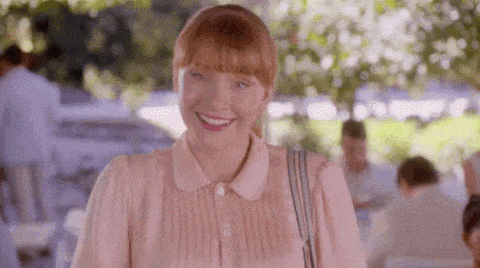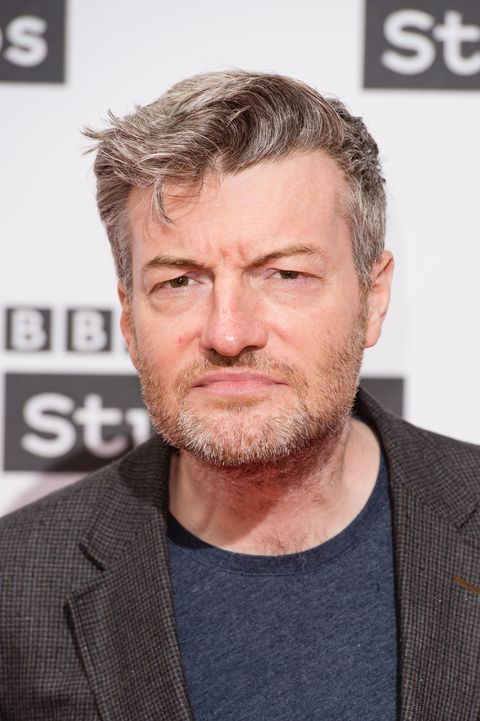
If the first thing you do in the morning is reach for your phone, you’re not the only one. In fact, Black Mirror creator Charlie Brooker is guilty of it, too, admitting that the “ritual” of scrolling through social media when he wakes up is as addictive as when “I used to reach for cigarettes” as a smoker.
It’s a mixture of mindless habit and instant gratification; but is there an end to our social media obsession in sight? What will happen if we continue down this rabbit hole of Instagram, Facebook and Twitter addiction?
If the first thing you do in the morning is reach for your phone, you’re not the only one. In fact, Black Mirror creator Charlie Brooker is guilty of it, too, admitting that the “ritual” of scrolling through social media when he wakes up is as addictive as when “I used to reach for cigarettes” as a smoker.
It’s a mixture of mindless habit and instant gratification; but is there an end to our social media obsession in sight? What will happen if we continue down this rabbit hole of Instagram, Facebook and Twitter addiction?
In June 2017, the Education Policy Institute found that a third of UK 15-year-olds use the internet for six or more hours a day, while a quarter of teens think they’re addicted to social media (via BBC Newsbeat). All the while, celebrities are announcing Instagram hiatuses for mental health reasons, Apple are starting to track how long you spend on each app, and the book Why Social Media Is Ruining Your Life is an Amazon best-seller.
Which, if you think about it, seem like fairly major steps to avoid those teenagers turning out like Nosedive’s Lacie Pound. In the episode – the first one of Black Mirror series 3 – Lacie lives in a world where people can rate each other out of five stars for every single interaction they have. In turn, these ratings impact their socioeconomic status – the cars they can buy, the places they can live, the people they can hang out with.
Is anyone else drawing worrying parallels between that, Instagram like-for-likes and receiving a list of who’s viewed your Story each day? “Social media is extremely similar to Nosedive”, Charlie Brooker told Cosmopolitan UK exclusively. “I once ranked Twitter as one of the most influential games of all time, and people were like, ‘What? That’s not a game!’ But I contend that it is. Because it’s a role playing game in which you basically perform a character based loosely on yourself in exchange for influence, and scoring points on a table.
“Human beings have always pretended to be happier than they are, or pretended to be more successful and content and stable than they are. But now it’s codified – there’s a number [of likes] attached to it and you’ve got tools that allow you to choose the right image or airbrush yourself”. And much like Lacie Pound – “we’re all doing it all the time”.
The idea of being as obsessed with your online rating as Lacie Pound is terrifying, but for many, it’s not far from reality. Grace, a 23-year-old PhD student, barely goes an hour without checking out her Instagram feed and seeing what’s going on online. “I can’t help it”, she tells Cosmopolitan UK. “My boyfriend says my phone is like an extension of my right arm, which is true. I’m almost always on it – even when I’m watching TV or doing uni work, my phone is no more than half a metre away from my hand.”
Though Charlie says, “on the one hand, Instagram is fairly harmless”, he does note the addictive quality and psychological impact of the content we, like Grace, so regularly consume. “It’s like eating pistachio nuts – the ritual of cracking open the pistachio nut is more addictive than the nut itself – that’s what scrolling through your timeline is like. Like eating sugar – there’s something in our brains that is pleasurable about social media. It’s clearly activating a pleasure nubbin and we have no self-control.”
Psychologist Emma Kenny explains that this lack of self-control is because receiving likes and feedback to our posts quite literally gives us a physiological high. “It’s a reward cycle”, she comments. “You get a squirt of dopamine every time you get a like or a positive response on social media. It’s like a hit, similar to the way you feel when you have a drink. The social media like triggers that reward cycle and the more you get it, the more you want it.”
So where do we go from here? When social media is so closely intertwined into our everyday lives, is there a way to avoid being completely consumed by it a la Nosedive – or do we just have to accept that this is the way it is and move on?
Charlie thinks not. “Maybe as we wise up to it, we’ll start to realise that it’s actually meaningless to care about what other people think. In a way, no one really gives a shit what you look like because they’re busy worrying about what they look like. Maybe we’ll evolve – maybe we’ll grow out of social media.
“Either that, or it should be law that every attempt of showing off on Instagram, you also have to show yourself at your worse to balance it out. For every avocado toast you upload, you have to upload an Instagram of your shit after the meal.”
I know which one I’d prefer.
“The tech companies can see that this is a thing [people switching off social media] that’s brewing and they’re trying to get ahead of it”, Charlie concludes. As social media continues to grow, so too do the provisions being put in place to make sure we don’t turn off. Google’s new phone has a function that disables apps at a chosen time, Instagram have considered tracking the hours you spend on it, and Apple create a graph showing how long you’ve spent on your phone each day.
Of course, whether it’s up to social media CEOs to regulate Lacie Pound’s social media consumption is up for debate, but one thing is for sure – they’d rather do that than everyone turn their backs all together.
[“source=Cosmopolitan“]



